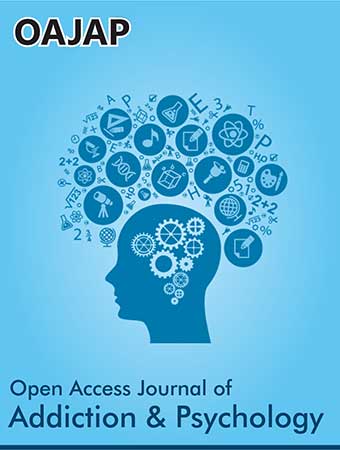 Minireview Article
Minireview Article
Intervention Studies on Forgiveness
Heather Hewitt, School of Psychology and Counseling, Regent University, USA.
Received Date: August 10, 2022; Published Date: September 30, 2022
Abstract
Injustice is seen every day, affecting the lives of the innocent dramatically. Forgiveness in a person’s life releases all bitterness, resentment, or anger towards another individual. This article review of Intervention Studies on Forgives: A Meta-Analysis interprets the study and provides how the results communicate the basis of this study. The authors researched nine empirical studies on forgiveness. The results of this study showed no significant difference in forgiveness between the decision-based interventions and those with no interventions. The authors offered three concluding thoughts: The first, greater effectiveness of the process models of forgiveness. The second, significant higher scores for longer term individuals and the third, large effective size of process-based individual counseling.
Keywords:Forgiveness
Introduction
Every human being experiences the joy, excitement, and hurt of life every day. Injustice is seen every day, affecting the lives of the innocent dramatically. As a result of this injustice, individuals live in fear, anger, or resentment toward those who harmed or mistreated them. The relationship within the lives of these individuals are hindered or damaged. Baskin TW & Enright RD [1], conducted a study called “Intervention Studies on Forgiveness: A Meta- Analysis.” This article review will interpret the study and provide how the results communicate to the theory presented as the basis of this study.
Discussion
Forgiveness in a person’s life releases all bitterness, resentment, or anger towards another individual. In the journal article, “Intervention Studies on Forgives: A Meta-Analysis,” the authors explain that forgiveness is relevant to all relationships: marriage, parent-child, dating relationships, etc. [1]. The authors researched earlier cases that have been conducted on the study of forgiveness [1]. Baskin and Enright [1], found that forgiveness helped people who have experienced deep emotional pain. By choosing to release all hatred, bitterness, and resentment toward a specific person, the individual was able to enjoy the freedom of forgiveness.
The authors’ defined forgiveness as the act of willingly giving up of resentment in the face of another’s considerable injustice [1]. The authors explained that forgiveness is a choice; the individual has to choose to forgive the specific person in order for forgiveness to begin its healing process [1]. The authors continued to define the three basic intervention models and within each they described the function they served [1]. The authors said that the first two models are process based, while the third is decision based [1]. Once a person decides to forgive, they are deciding to not be a controlling factor [1].
Baskin TW & Enright RD [1], researched nine empirical studies on forgiveness. Within each, the authors described the study and the view of forgiveness found in each. The authors categorized each of these nine empirical studies into three groupings: (a) primary decision based; (b) process based and group format; (c) process based and individual format [1]. The results of this study showed no significant difference in forgiveness between the decision-based interventions and those with no interventions [1]. Baskin TW & Enright RD [1], learned that the average person in the intervention group, process-based group, did 75% better than a control group. Moreover, the average person in the intervention group, processbased individual, did 95% better than a control group [1].
In the discussion, the authors offered three concluding thoughts: The first, greater effectiveness of the process models of forgiveness; the second, significant higher scores for longer term individuals; the third, large effective size of process-based individual counseling [1]. The authors concluded by stating that further research on clients for an extend amount of time was suggested but was satisfied in the results of this study [1].
Conclusion
The authors did an excellent job in explaining in detail the research that was conducted for this journal article. The authors’ material was clear, organized, and well thought-out. The authors emphasized the importance of the individual’s choice in forgiveness. The authors did a fine job in this aspect because they recognized that forgiveness is not the choice of the counselor but the clients. Within the article, the authors did an outstanding job in citing the sources. For the reader, further research was possible because of the authors careful care in citing the sources used in the article.
Although the authors did an excellent job in researching the client’s response to forgiveness, the authors did not place any attention on the counselor’s view of forgiveness. One’s worldview is vital in counseling, the way the counselor views the topic of forgiveness affects the way the counselor will offer advice to the client. What happens when the counselor believes the offender needs to ask forgiveness before the innocent person can begin to forgive? Moreover, what if the counselor and client view forgiveness differently?
The authors explained that forgiveness is the choice to forgive another person for the injustice towards them. However, the authors did not consider the aspect that the client may be the one who did the offense. If so, does the counselor advise them to pursue forgiveness for sake self or the other individual? Also, the authors did not address the idea that the client needs to take action in asking forgiveness, not just proclaim a decision to forgive.
Acknowledgement
None.
Conflict of Interest
Author declares no conflict of interest.
References
- Baskin TW, Enright RD (2004) Intervention studies on forgiveness: A Meta-Analysis. Journal of Counseling & Development 82(1): 79-90.
-
Heather Hewitt*. Intervention Studies on Forgiveness. Open Access J Addict & Psychol 6(1): 2022. OAJAP.MS.ID.000629.
Forgiveness; Empirical studies; Decision-based interventions; Emotional pain; Counseling
-

This work is licensed under a Creative Commons Attribution-NonCommercial 4.0 International License.






